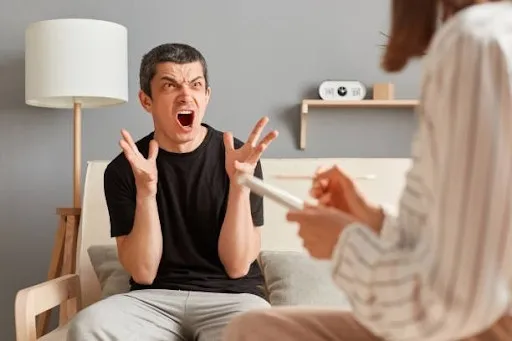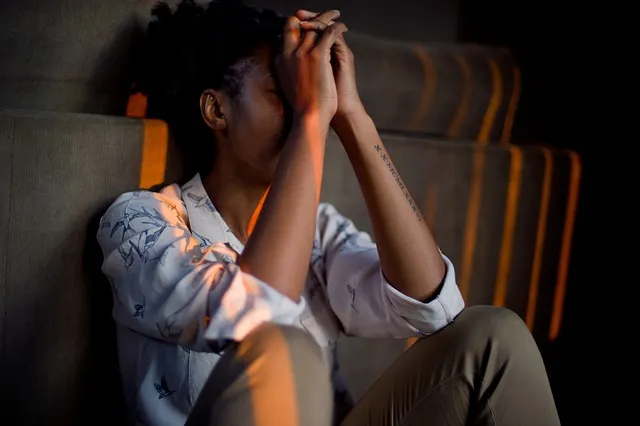No one is invincible when it comes to COVID-19, but this infection is relatively riskier for certain groups of people - pregnant women, people with pre-existing medical conditions, and people who are 60 years of age & above. The Ministry of Social Justice & Empowerment (MSJE) has issued a COVID-19 advisory of 'Do's and Don'ts' for senior citizens and their caregivers. This COVID-19 Advisory for senior citizens is crucial to keep them safe and healthy during the Coronavirus outbreak.
COVID-19 Advisory - Who is it for?
This advisory has been issued for those who are 60 years of age or older, especially the ones with any of these medical conditions; and their caregivers -- Cancer
- Diabetes
- Hypertension
- Chronic Neurological conditions, like Stroke or Parkinson's Disease
- Chronic Kidney Disease
- Chronic Liver Disease, like Viral Hepatitis or Alcoholic
- Chronic Heart Disease, like Heart Failure
- Chronic & Long-term Respiratory Diseases, like COPD, Asthma, Interstitial Lung Disease, Post Tuberculosis Sequelae, or Bronchiectasis.
Ministry Advisory - DO'S & DON'TS for Senior Citizens
Do - Stay indoors at all times, and avoid having any visitors at your home. Don't - Come in close physical contact with a person showcasing symptoms of the Coronavirus infection, like coughing, runny nose, fever, or breathing difficulty. Do - If you must remain in physical proximity to someone, maintain a distance of at least 1 meter. Don't - Shake hands with or hug your friends who are not living in your household or showcasing symptoms of the infection. Do - Avoid all kinds of gatherings, big or small. If you live alone, seek help from neighbors who are healthy to get your essentials (groceries & medicines) for your home. Don't - Go into crowded places like markets, stores, parks, or religious places. Do - Stay active and keep moving around in the house for your day-to-day chores. Also, take some time out for light exercise or yoga. Don't - Cut down on physical activities just because you cannot go out for a walk. Do - Practice good hygiene by washing hands frequently, and using soap & water for a minimum of 20 seconds. This must be done especially before having meals and after using the bathroom. Clean the surfaces & objects that you touch frequently, like your spectacles. Moreover, cough or sneeze into a disposable tissue (which is disposed of immediately) or a handkerchief (which is washed after use). Don't - Cough or sneeze into your bare hands, and touch your face, eyes, or nose with it. Do - Eat home-cooked, fresh, and healthy food. Drink enough water and maintain a regular intake of fresh juices for stronger immunity. Also, take your daily prescribed dose of medication regularly. Don't - Self-medicate. Do - Keep track of your health. If you face any medical issue or showcase any of the warning signs of COVID-19, consult a doctor immediately and follow the prescribed treatment. Book a table or video consultation with your doctor as far as possible, instead of leaving your house and visiting the hospital. Don't - Visit a hospital or any other healthcare facility for regular health checkups or follow-ups. Do - Stay connected with your friends and family through voice & video calls. If required, take help from your family members for the same. Don't - Invite and socialize with your friends and relatives at your home. Those with pre-existing Kidney and Heart Diseases must ensure intake of enough water and keep themselves hydrated during the summer season. Credihealth Recommends: Book a Tele/Video consultation with leading doctors in the country or talk to a Credihealth Medical Expert for further assistance.Ministry Advisory - DO'S & DON'TS for Care-Givers of Dependent Senior Citizens
Do - Cover your mouth & nose properly with a tissue/cloth/mask when attending to a senior citizen. Don't - Go near senior citizens if you are showcasing any of the symptoms like cough, fever, runny nose, or shortness of breath. Do - Practice good hygiene and wash your hands with soap and water before helping the older person. Don't - Make physical contact with them without washing your hands. Do - Clean the surfaces and things that are frequently used, like the walking stick, walker, bedpan, wheel-chair, etc Don't - Touch the surfaces used by them frequently, without washing your hands Do - Help them wash their hands Don't - Keep them bed-bound and with zero physical movement Do - Ensure they eat healthy food and drink enough water, especially now during the summer season Keep track of their health. In case they begin to experience symptoms like fever (with/without body ache), cough, shortness of breath, unusual drop in appetite, or inability to eat, contact the helpline number. Credihealth Recommends: In case of an emergency, book a tele/video consultation with a doctor or avail the Credihealth Ambulance Service.Ministry Advisory - DO'S & DON'TS ON MENTAL WELLNESS for Senior Citizens
Do - Talk to family members at home, and talk to your neighbors, without compromising on social distancing protocols. Don't - Confine yourself in one room. Do - Avoid the use of alcohol, tobacco, or other drugs to combat loneliness. Create a peaceful environment around yourself. Rekindle your old hobbies like music, reading, gardening, etc. Don't - Isolate yourself. Do - Access and believe only the information that comes from credible sources. Don't - Believe sensational news or social media posts, or share any information that is unverified and not coming from credible sources. Do - If you have an existing mental illness, call 08046110007 If you are feeling a change in your mental health, like feeling unusually drowsy, speaking inappropriately, showcasing a lack of response, or being unable to recognize known people, call the helpline number. Also, check - Mental Health During Coronavirus & Government Initiative To find the Best Doctor in India
Reviewed by







